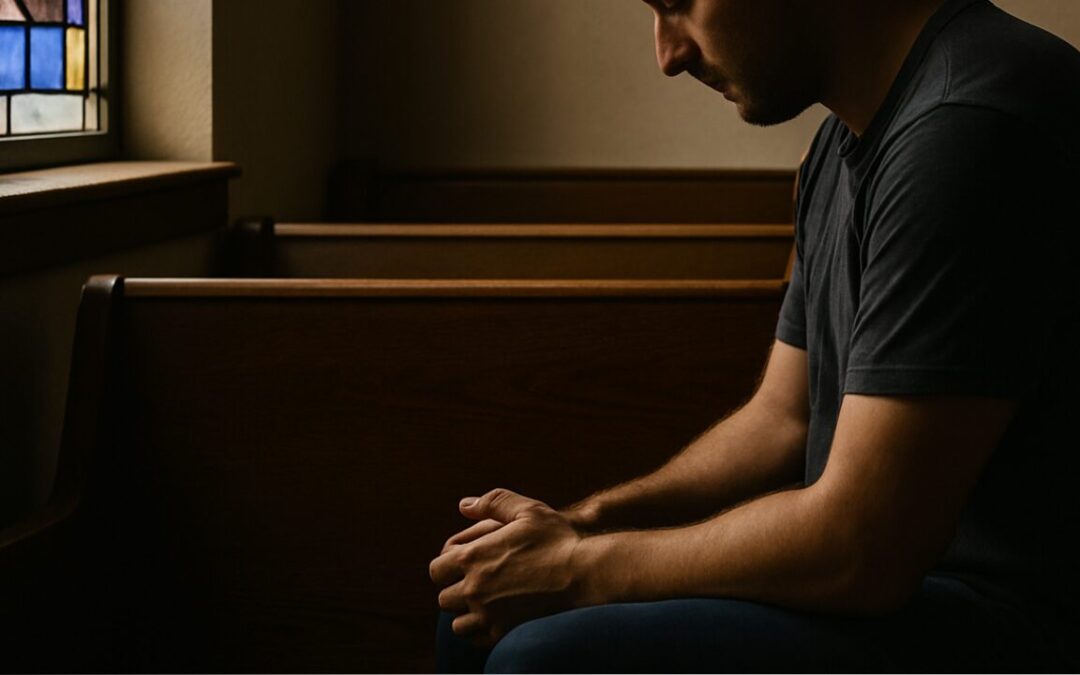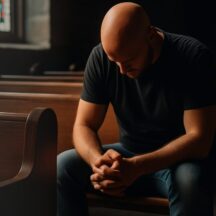We don’t always mean to isolate ourselves.
Sometimes, it just feels easier than the alternative. Simpler. Less complicated. Less exhausting.
I don’t think I’ve ever really fit the mold when it comes to group dynamics. I’ve spent most of my life feeling like the odd man out—not because people pushed me out, but because I pulled away. Being around people drains me. Navigating their emotions, their conversations, their drama—it all feels like more work than it’s worth. Even when someone means well, I often struggle to track their thought process or relate to what they care about. Most social interactions just feel like I’m operating on a completely different frequency.
So I retreat.
Not because I don’t want connection.
But because I don’t know how to get it without it costing more than I can afford to give.
The Roots of Isolation
I moved around a lot as a kid. My family didn’t stay in one place long enough to build deep relationships. I never met my biological father. My stepdad was in and out of jail. My mom had her own battles. And summers were often spent being sent away to other relatives. There wasn’t much room for emotional connection—not even within my own home.
So I learned early on: Don’t rely on people. Don’t get too close. Handle it yourself.
That mindset served me in some ways. It made me resilient. Independent. Driven. It got me through the chaos. But it also made me lonely. Deep down, I think a lot of men carry that same blueprint.
And in the rare moments when I needed someone—when a friend died in combat, when I went through a divorce, when life knocked the wind out of me—I didn’t know who to turn to. Or how. Or if I even could.
There were a couple guys across my life who helped carry me through some of those hard times. But only a few. Literally three men stand out in my memory as true friends who walked with me during the darkest parts of my life. And I don’t talk to any of them anymore—not because of a falling out, but because of time, distance, and (if I’m honest) my own lack of follow-up.
The Awkward Truth About Men’s Groups
I’ve been to Bible studies. I even attend a weekly class now. But I’ll be honest—those don’t always scratch the itch.
It’s not the fault of the group or the teacher. In fact, I respect the heck out of the guy who teaches my current Bible class. We’ve grown close over the years. But our relationship mostly exists on Mondays. We don’t talk much outside of that.
And I think that’s part of the problem.
Churches see the isolation issue, so they organize programs. Men’s groups. Retreats. Breakfasts. Bible studies. And those are good things. They’re well-intentioned. They’re led by good people. But for guys like me, they can feel a little… clinical. A little too institutional.
I don’t want to be assigned to a group of men and told to form friendships. I want it to happen naturally. Organically. Like the best friendships do. The idea of institutional friendship feels like a playdate for grown-ups—and I don’t do playdates.
What I want is someone to invite me to coffee. Or lunch. Or just check in. Not as part of a program, but as a person who genuinely cares. Someone who pursues friendship the way they’d pursue a date—with intention, not obligation.
The Weight We Carry Alone
The truth is, most of us men are torn in three directions: husband, father, provider. Our time is swallowed up by our responsibilities. Any spare moment feels like it should be given to our families. And if we’re not spending time with our wife or kids, we feel guilty.
That guilt keeps us from reaching out. From making plans. From having deeper conversations. So instead, we tough it out. We try to figure things out alone. We try to carry more than we’re built for—and act like it doesn’t hurt.
Add to that the weight of masculinity—the desire to be strong, dependable, unfazed. I don’t want my kids to feel like they have to carry my burdens. And I don’t want my wife to see me break down. I want her to see me as strong. As steady. As safe.
There’s a traditional idea here—not that men can’t be emotional, but that we don’t want to be perceived as unstable. I know if I came home every night and broke down crying, it would affect the way my wife sees me. Even if she wouldn’t say anything, I’d know. And that changes the dynamic of a relationship. I’m supposed to be the one she leans on—not the other way around.
So I take it all to God. And maybe, if I’m lucky, I have a guy or two in my life I can really open up to. But even then, it’s usually squeezed into tiny windows of time, cut short by the ever-present sense of duty calling us back home.
What the Church Can Do (Without a Guilt Trip)
I want to be clear: I’m not criticizing the Church.
I go to church almost every week. I’ve had lunch with pastors. I’ve been married 16 years by one of them. I know they care. I believe most church leaders want to help.
But here’s what I see:
A lot of church efforts feel like bulletin announcements. Structured. Organized. Promoted. They often feel like a department trying to solve a problem with spreadsheets and events. But people aren’t problems—they’re people.
What we need is messier. Less rigid. More human. We need guerrilla ministry. We need people who go out and meet men where they are. Not just to bring them back to church. But to befriend them. Mentor them. Walk with them.
Church shouldn’t just be about plugging people into programs. It should be about plugging people into people.
Jesus didn’t just shout a message from the temple and wait for the right ones to show up. He walked. He sat. He listened. He called people by name. He shared meals. He made room.
We need more of that.
Why This Matters
Because the guy you pass on Sunday morning might be in a world of pain.
He might be isolated not because he’s arrogant or aloof—but because he doesn’t know how to reach out. Because life taught him early on not to expect anyone to stick around. Because every relationship he’s had felt conditional.
As Scripture reminds us,
“Two are better than one,
because they have a good return for their labor:
If either of them falls down,
one can help the other up.
But pity anyone who falls
and has no one to help them up.”
But too many men today are falling—and no one’s there to catch them.
And because strength, to him, looks like silence.
If we’re going to reach those men, it won’t be through structure alone. It’ll be through sacrifice. Through pursuit. Through presence.
So if you’re a Christian man who feels isolated, you’re not the only one.
And if you’re a church leader wondering why men won’t come to your group, maybe it starts with meeting one of them for lunch.
Not because it’s your job. But because it’s your heart.
Because at the end of the day, men like me don’t need another program. We need a person. One real person who shows up and stays.
You don’t have to walk through life alone.
If any part of this hit home, I want to invite you to grab my free resource:
Start Strong: A Daily Reset for Men Who Refuse to Quit.
It’s not a fix-all, but it’s a place to start—a simple, steady way to refocus each day and remember who you’re becoming.
You don’t need a crowd. You just need to take the next step.












